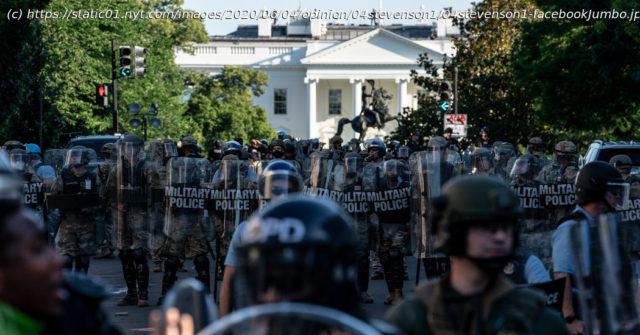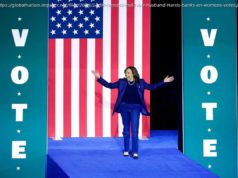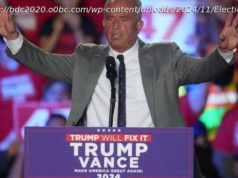An apolitical army is central to American democracy. But the president is using the armed forces to subvert it.
On Tuesday, a day after mobilizing military policemen and an Army Black Hawk helicopter for aggressive crowd control during a photo op, President Trump deployed elements of the 82nd Airborne Division to Washington.
These were down payments on his pledge to use the nation’s armed forces to quash the nationwide protests triggered by the death of George Floyd, if the president is not satisfied with state and local efforts.
Legal and military experts have debated whether Mr. Trump can or should deploy troops in response to the protests. On Wednesday the secretary of defense, Mark Esper, broke with the president, saying he did not think the military was needed.
While the protests continue, the widespread looting and arson that marked some of them over the weekend have abated. What’s left, though, is yet another example of Mr. Trump’s dangerous fetishization of the military.
Early on, he surrounded himself with what he called “my generals” — John Kelly, James Mattis, H. R. McMaster and others. He seems obsessed with military parades. He panders to excessively violent military personnel. Two common threads connect it all: a desire to obscure his own flagrant evasion of military service and to gain vicarious credibility as a tough guy.
Through the first three years of his administration, Mr. Trump’s fatuous strutting amounted to a largely harmless and certainly transparent charade. Now, though, he actually appears to be contemplating a form of martial law, oblivious to the customary American abhorrence for it.
Unlike, say, China’s People’s Liberation Army, U. S. forces are essentially expeditionary, focused on external threats and overseas operations. There is a clear historical aversion to using the military for domestic law enforcement, and federal laws restrict military authority and actions in the domestic context.
It’s true that the Insurrection Act of 1807 allows the president to deploy the armed forces domestically to quell civil disorder that renders ordinary law enforcement impracticable. But presidents have used it only about 20 times, in most cases at the request of a state governor.
Although the statute does not require state consent, it is clearly preferred. The only explicitly defined instances in which the federal government can ignore state resistance, established by expansions of the original act during and after the Civil War, are direct rebellion against federal authority and persecution of African-Americans by the Ku Klux Klan.






